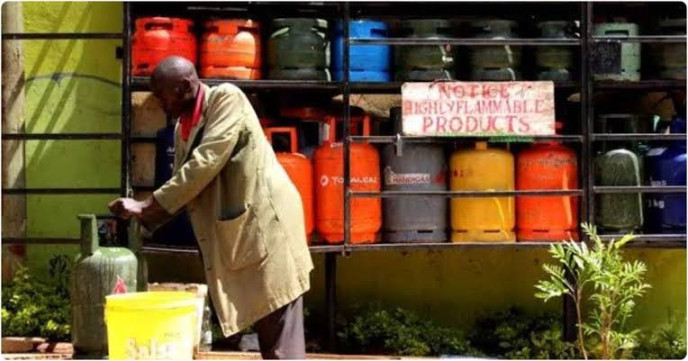- 5892
- 1
Sharing Ideas and Updates on LPG in Nigeria and related information to enable effective collaboration within the LPG Value Chain
LPG Safety Practices Among Retailers: A Crucial Guide To Secure Operations.

In the world of LPG (Liquefied Petroleum Gas) retail, safety is non-negotiable. Handling and distributing this valuable energy source come with a host of responsibilities to ensure the well-being of employees, customers, and the environment. In this blog post, we will explore essential LPG safety practices that every retailer should embrace to guarantee secure operations and foster trust within the community.
1. Rigorous Staff Training:
Safety begins with knowledge. Before any employee steps foot in an LPG retail facility, comprehensive training is a must. This training should cover the safe handling of cylinders, emergency response procedures, and the proper use of safety equipment. Regular refresher courses keep everyone informed about the latest safety protocols.
2. Adherence to Regulatory Standards:
LPG retail businesses must adhere to the regulatory standards and guidelines set forth by local, regional, and national authorities. Compliance is essential to guarantee safe practices in the industry. Regular audits and inspections are a means of ensuring adherence to these standards.
3. Routine Equipment Inspection:
Scheduled equipment inspections are vital. Retailers should routinely check their equipment for signs of wear and tear, corrosion, and any potential leak sources. Proactive maintenance and prompt repairs are necessary to prevent accidents or malfunctions.
4. Emergency Response Preparedness:
Safety doesn't stop at prevention; it also entails preparedness. Retailers should have robust emergency response plans in place. These plans should outline procedures for addressing gas leaks, fires, medical emergencies, and other unforeseen events. Regular drills and training exercises keep employees ready for quick and effective responses.
5. Personal Protective Equipment (PPE):
Employees should wear the appropriate PPE, including gloves, safety goggles, helmets, flame-resistant clothing, and, when necessary, masks. PPE is essential for protecting employees from potential leaks, splashes, or accidents.
6. Safety Signage and Information:
Clearly visible safety signage and informative materials should be displayed throughout the facility. These materials should offer guidance on safe practices, emergency contact numbers, and the location of safety equipment.
7. Leak Detection and Alarms:
Install reliable gas leak detection systems and alarms. These systems can rapidly identify and alert employees to gas leaks, allowing for swift intervention to mitigate risks.
8. Controlled Ventilation:
Well-ventilated areas are essential in LPG retail facilities. Proper ventilation helps disperse any potential gas leaks, preventing the accumulation of dangerous fumes.
9. Fire Safety Measures:
Every retail facility should be equipped with fire safety measures such as fire extinguishers, sprinkler systems, and fire blankets. Regular fire drills and training ensure that employees know how to handle fire emergencies safely.
10. Customer Education:
In addition to employee training, it's crucial to educate customers about the safe use of LPG. Provide clear instructions on cylinder handling, storage, and usage. By promoting customer safety, you also reduce the risks associated with incorrect handling.
11. Gas Cylinder Storage:
Gas cylinders should be securely stored, preventing them from falling or being knocked over. Adequate labeling and separation of full and empty cylinders are essential to avoid confusion and accidents.
12. Compliance with LPG Guidelines:
Retailers should ensure that all cylinders and equipment meet relevant LPG industry guidelines. This includes proper maintenance and requalification of cylinders as required.
13. Incident Reporting and Documentation:
Maintain meticulous records of any safety incidents, equipment inspections, and training sessions. Documentation is crucial for analysis and continuous improvement in safety practices.
14. Community Awareness:
Engage with the local community to raise awareness about safe LPG practices. Hosting safety seminars or outreach programmes in collaboration with community groups can help build trust and address any concerns.
In conclusion, safety practices are the cornerstone of any successful LPG retail business. Embracing these safety measures not only protects your employees, customers, and the environment but also builds trust in your business. By fostering a culture of safety and compliance, you ensure that LPG remains a safe and accessible energy source for all.
















Rume
31 March 2025 - 04:44pmComprehensive write up. Kudos
Reply